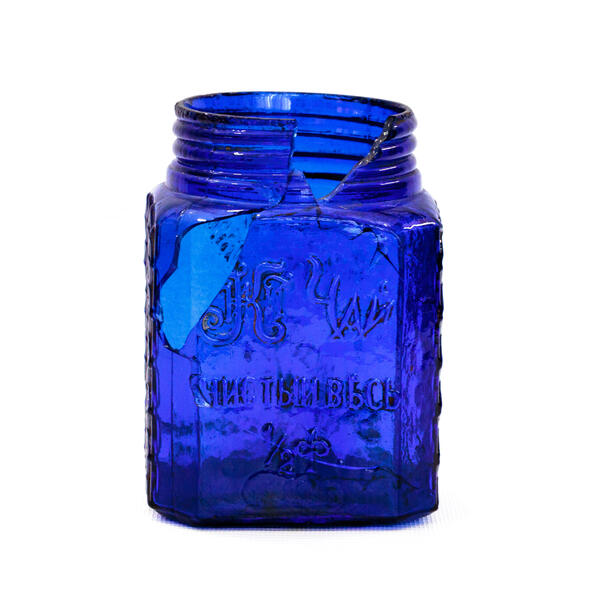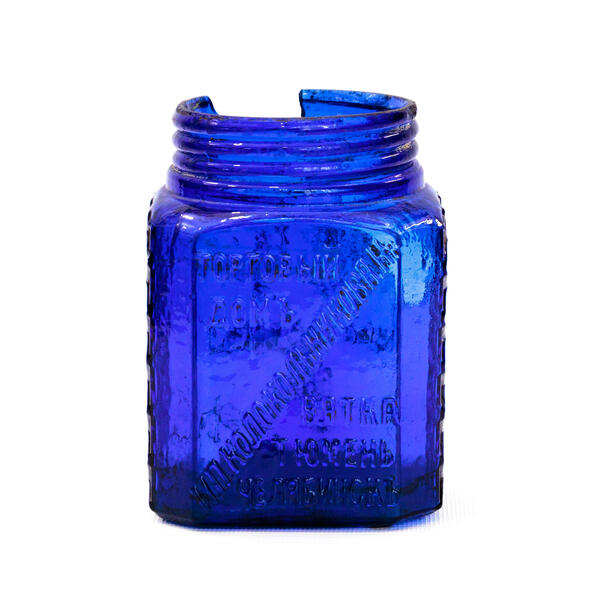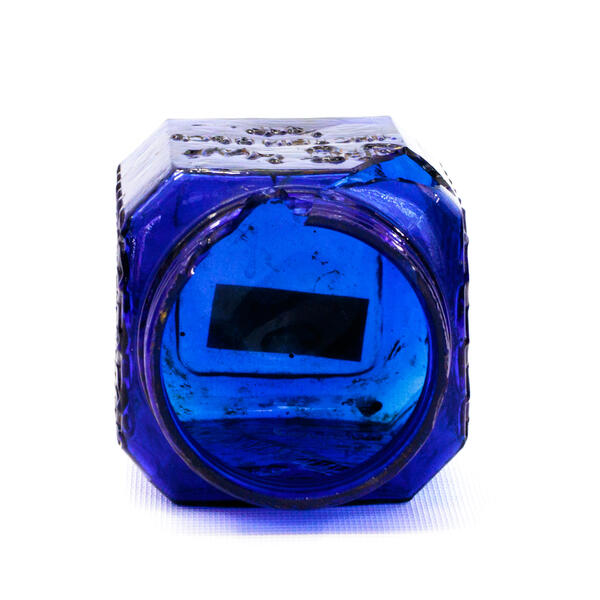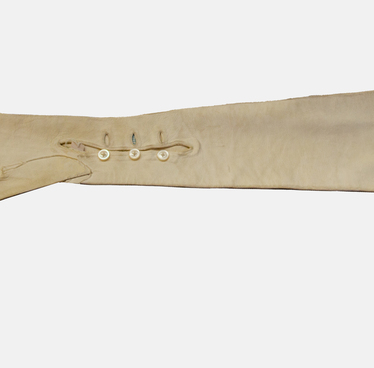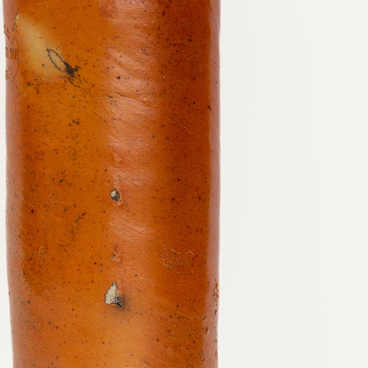The blue jar was made of glass in the Russian Empire in the late 19th — early 20th century. Such jars were used as branded packaging for tea of the partnership “Ivan Kolokolnikov Trading House. Heirs”.
The origins of the Kolokolnikov family go back to Cossack foot scouts. They were involved in the most important events in the history of Siberia throughout several centuries. During the 17th–18th centuries they were part of the Siberian “service aristocracy” and participated in the Russian conquest of Siberia and the development of this region. The family was mostly involved in casting bells, hence they received the family name “Kolokolnikov” (the Russian word “kolokol” means “bell”). In 1699, in Moscow, when there were discussions of building ironworks in the Urals, the Tyumen craftsman Yelizar Kolokolnikov volunteered to “make samples” or molds for casting cannons.
In the first quarter of the 18th century, the Kolokolnikovs were the owners of a large foundry. There they worked themselves, however, most other workers worked for hire. They accepted commissions and made products for sale. The factory cast church bells, harness bells, copper and tin tableware, which they released to the market. High skill and familiarity with gun production allowed such complex products as cannons to be cast at the Kolokolnikov factory. Once the family amassed a capital, they retired from the foundry trade, and in the late 18th century, the Kolokolnikovs have firmly established themselves as the business elite of Siberia.
Ivan Petrovich Kolokolnikov, a
Tyumen merchant of the 1st guild, had quite a large family: six sons and a
daughter. Following the aftermath of the troubled events of the early 20th century, the family of the Tyumen
merchants was scattered all across the world — from America to China: son
Stepan found himself in New York, USA, and Viktor — in Harbin. Unfortunately,
there were no heirs left abroad, as Viktor was single and had no children, and
Stepan’s four-year-old son died in Tyumen back in 1916. Currently, there are
about ten people in Russia, who are direct descendants of this glorious family.
They reside in Irkutsk, Krasnoyarsk and Moscow. In the Soviet times, the
ancestral home of the Kolokolnikov merchant family in Tyumen became the
“Headquarters of Vasily Blyukher” museum (during the Civil War in Russia, this
place served as the headquarters of the legendary Russian commander), and now,
together with their former tea shop, it became part of the branch of the Tyumen
Regional Museum of Local Lore called the “Kolokolnikov Museum-Estate”.

